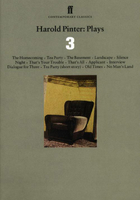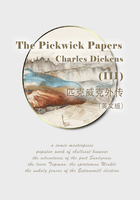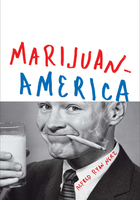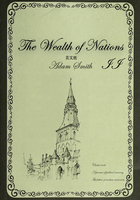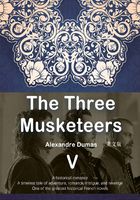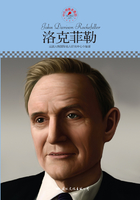Prime Minister Austen Chamberlain splits the Tories
Stephen Bates
Rarely can there have been a man for whom a glittering political career has been so ordained from birth as Austen Chamberlain. And rarely has there been a senior politician whose character less equipped him to reach the heights for which he had been groomed and to which he and his family assumed he was entitled.
It was not exactly a bad career: Chancellor of the Exchequer a week before his fortieth birthday, later Secretary of State for India and Foreign Secretary, and altogether a minister for more than twelve years during forty-five years as an MP.
Yet more was always expected of him and the premiership was what many saw as his due and destiny. Like several others, though, who thought similarly of themselves – Anthony Eden and Gordon Brown come to mind – Chamberlain's ambition ended in dust and ashes.
Photographs of Austen Chamberlain and his father Joseph show an eerie similarity. Both are pictured outside the same wrought iron gates at the House of Commons. Both are tall, lean men; both wear identical clothes: grey frock coats, white waistcoats and wing collars. Both have buttonholes; both slicked-back hair parted on the left; both monocles in the right eye. If there is a difference, it is that Austen has the more patrician and haughty expression.
Joseph, the prosperous screw manufacturer who became lord mayor of Birmingham at the age of thirty-seven and pioneered a programme of municipal improvement locally – 'gas and water socialism' – and political radicalism nationally, would end up wrecking both main parties. As a Liberal he fell out with Gladstone over home rule for Ireland and then as a Conservative Unionist twenty years later brought electoral disaster on his party by calling for the imposition of import tariffs to replace the free trade on which British prosperity was thought to rest.
As a force of political nature, Joseph was dynamic but mistrusted: not necessarily the recipe for successful leadership. But if he fell short of the highest office to which his talents might have taken him, then his eldest son Austen – whose mother, Joseph's first wife, died giving birth to him in 1863 – was destined from childhood to carry the dynasty onwards in politics and government. 'He was,' said Joseph, 'born in a red box, brought up in one and [will] die in one.'
By comparison Austen's younger half-brother Neville was earmarked to carry on the family business, maintain the family fortune and aspire to nothing more than municipal politics.
Austen received a gentleman's education: Rugby and Cambridge, becoming vice-president of the Union debating society, strongly defending his father's policies, before completing his studies with lengthy stays in Paris and Germany to learn the languages and meet influential people such as the Iron Chancellor, Bismarck, with whom he dined. Such privileged progress didn't impress the young man too much: 'one day succeeds another with great monotony,' he wrote. 'A series of such days carry one through the week and the time to write another letter comes round without my having found anything fresh to say.'
He and Neville then found time to deplete the family fortunes with an unsuccessful investment venture in sisal production in the Bahamas – the only commercial, indeed non-political, occupation in Austen's entire life – before he found a safe seat, unopposed, as a Liberal Unionist like his father, and a niche in the Commons at the age of twenty-nine in 1892. As political apprenticeships go, it was not strenuous, and he was duly escorted into the chamber with his father on one side and his uncle on the other.
He was a dynastic rather than natural politician: too often 'wooden in face and manner, pompously correct, impeccably virtuous and frigidly uninteresting', as Leo Amery, a political ally, would write in The Observer after Chamberlain's death. Being his father's son imposed a burden of expectation on Austen – for him, to support and expound his father's policies and, on the part of others, that he should echo his father's success. Even early on, it was noticed that he lacked his father's drive and fire, that he was lacking the common touch or the energy to push him and party policies forward.
He suffered, one historian has written, 'from being the over-groomed offspring of an outstanding personality'. More waspishly, Arthur Balfour, the Tory leader and Joseph's rival, observed: 'If only Austen was what he looked, how splendid he would be.' Much later, Balfour would speculate on Austen's shortcomings as a politician: 'Don't you think it's because he is a bore?'
That did not prevent a general expectation on his part, his father's part, his party's part, the newspapers' part and the public's part that he was born to rule. The only impediment was that the Chamberlain name was regarded with suspicion, not only among Liberals who saw his father as a traitor, but also among Conservatives who distrusted Joseph Chamberlain and his Liberal Unionist supporters as a disruptive force. If that sense enhanced Austen Chamberlain's political diffidence, it did not stop him climbing seemingly effortlessly ever upward in his career: first the whips' office, then ministerial office at the Admiralty, then financial secretary to the Treasury, and, in 1903, Chancellor of the Exchequer.
Five months earlier, Joseph Chamberlain had launched his campaign for the introduction of protective tariffs on goods imported from outside the Empire, a move which convulsed British politics and contributed to the Conservative and their remaining Liberal Unionist colleagues' landslide defeat in the 1906 election. Austen and his father survived the political massacre but within a few months Joseph suffered a severely disabling stroke which left him partially paralysed and with impaired speech. It was thus left to Austen to emerge from his father's shadow, loyally continue the campaign for Imperial Preference and develop a political career in his own right.
By 1911 both parties were neck and neck in the Commons, in the wake of the constitutional crisis following the Conservative peers' attempt to derail the Liberal government's reforming Budget. Tory MPs grew dissatisfied with Balfour's languid and unenergetic leadership and it was assumed that Austen would succeed him in the ensuing race. Instead, he stood aside, allowing Andrew Bonar Law, a dour Canadian-Scots businessman to become leader.
The First World War saw the Conservatives brought into government and Chamberlain becoming first Secretary of State for India; then once again at the end of the war made Chancellor of the Exchequer in Lloyd George's coalition, responsible for trying to restore the country's economy.
In the spring of 1921, Bonar Law's health failed and he resigned. The two potential candidates to succeed him were Chamberlain, once again, and Lord Curzon, widely disliked for his arrogant and patronising manner. This time, Chamberlain assumed the Conservative leadership. Lloyd George was unpopular, especially with Conservative MPs who feared their party being dragged down in his wake, or, worse, subsumed into what was becoming the Prime Minister's personal party since the Liberals were themselves split between Lloyd George and the former leader, Asquith.
The crunch, when it came in the autumn of 1922, was unforeseen by Chamberlain. Discontent with being tied to the discredited Lloyd George was mounting on the Tory backbenches; there were threats to put up Independent Conservative candidates to oppose the coalition and there was a sense that the government was faltering and could not last much longer. Although several senior Tory members of the coalition insisted that loyalty demanded they continue to support the administration – a drunken Lord Birkenhead berated and insulted MPs who came to see him about withdrawing – Chamberlain could sense the way the wind was blowing.
Nevertheless he hesitated. He did not wish to be disloyal to Lloyd George, whom he had come to rather admire, nor to precipitate the downfall of the government, but by October that year Chamberlain knew that if he was to remain leader he had to lead his party back to independence. He would, he said, be like the Duke of Plaza-Toro in The Gondoliers, leading his party from the rear because he found it less exciting.
There was another reason to act, however. Bonar Law was making noises about returning, and there were signs of a challenge from Stanley Baldwin, a rather dull junior minister from a minor Worcestershire business background. He'd been Chamberlain's junior as financial secretary at the Treasury. Austen did not rate him: 'he is self-centred, selfish and idle… (sly) without a constructive idea in his head,' he would much later write to his sister Ida. But he was astute enough to realise that the revolt might spread.
At a meeting of Tory MPs at the Carlton Club on 19 October, Austen seized the initiative to ditch the coalition, making a speech which for once in his life had the backbenchers cheering. Bolstered by news that an independent Conservative candidate had just been elected in the Newport by-election, defeating Labour who had been expected to win, Chamberlain told his MPs: 'We must regain our own party and form a government at once otherwise we shall be in a damned fix.' An astonished Baldwin rallied the troops by reminding them that they were in thrall to a Prime Minister who was 'a dynamic force… a very terrible thing'. Even Bonar Law chimed in. He offered to resume the leadership, but found little enthusiasm. Of Chamberlain, Birkenhead said, he had undergone a conversion 'swifter than any known in secular or sacred history since Saul of Tarsus changed his name'.
Lloyd George, waiting in Downing Street to hear the outcome of the meeting, was told that the Tories had voted overwhelmingly to split from the coalition. Chamberlain burst in on him excitedly with the news: 'It is of course nonsense to describe it as a Belgravia intrigue or a revolt in the kitchen,' he told the Prime Minister.
Chamberlain had for once acted decisively to quell a revolt in his party, seize the initiative and vault into the prime ministership. He had achieved what his father had never accomplished: the King sent for him to form a government and he himself took up residence at No. 10 – a house, incidentally, that he never liked except for its association with power.
In forming his government, Chamberlain acted to reconcile his party's factions. Baldwin was promoted to Chancellor of the Exchequer and Birkenhead remained as Lord Chancellor. Curzon – who had himself hoped to become Prime Minister – was also left in post as Foreign Secretary. It was, Chamberlain said in his stiff way, an administration of first-rate men, though privately he described Baldwin as a man with 'no House of Commons gifts, can't debate, or think, or act quickly… terribly complacent'. Baldwin though was now too popular and influential within the party to sack, even though Chamberlain thought he was bound to fail as Chancellor.
What the country thought of its new Prime Minister was rather more complicated. In many ways he seemed a throwback to a pre-war era. He still dressed like an Edwardian, in a morning coat, with a wing collar to his shirt. An orchid reposed in his buttonhole and his monocle was screwed firmly to his eye. The French, though appreciative of his excellent foreign language skills, still chuckled at the English 'milord' in London.
Politically, Chamberlain lacked both the common touch and persuasive skills. His oratory was fluent, but stiff and formal. His relations with his constituents in Birmingham were distant and uncomfortable. He could not pretend to have his father's passion and radicalism, and his ideas remained trapped by his family heritage.
Ireland had gone – he grudgingly had to accept that, though he would do nothing to assist the government in Dublin as it fought a civil war against those who would not accept the treaty that gave the twenty-six counties independence.
But there was still the old idea of protective tariffs to pursue. As British industry struggled to revive after the war, he and many members of his government saw protectionism as the only way of ensuring companies could survive. He even wanted to extend tariffs to goods from the Empire, despite warnings about how badly that would be received in Australia and Canada.
Worse, Chamberlain could not see that the old policy of protective tariffs, championed by his father, was now counter-productive to British industrial recovery. It had never been electorally popular and opponents could still make capital with charges that protectionism increased prices at home and thus made the poor poorer still.
'His father's policy has always been to him a hereditary incubus about which he felt dutifully zealous, or dutifully bored,' wrote Leo Amery in his diary, before pinpointing the real tragedy of Chamberlain's short-sightedness: '[it] has never been to him a great object in itself'.
Nevertheless, many Tories agreed with Chamberlain. Baldwin himself became convinced too that tariffs were needed. He told the party conference in Plymouth in 1923 that they would protect jobs: 'To me at least the unemployment problem is the most critical problem of our country. I can fight it. I am willing to fight it. But I cannot fight it without weapons… I have come to the conclusion myself that the only way of fighting this subject is by protecting the home market.'
Baldwin had been scarred by his negotiations with the US government to reschedule Britain's war debts the previous year. Sent to Washington to secure a deal that would involve paying no more than £25 million a year, he had returned with one that amounted to paying £34 million annually for ten years, then £40 million for the next fifty-two, the debt not therefore scheduled to be paid off before 1984 – an unimaginable burden. There had been a Cabinet revolt, led by Bonar Law, whose throat cancer was slowly killing him and who could no longer speak above a whisper. Chamberlain had sat back, waiting to see which way the wind blew, leaving Baldwin swinging, but ultimately accepting the deal, as did the rest of the Cabinet. Within weeks Bonar Law had resigned, citing his ill health and in no condition to lead a party revolt. By the autumn, he was dead.
Early the following year, Baldwin wanted to go to the country on the policy of protective tariffs, but Chamberlain hesitated. The Labour Party in opposition was already making great play of their charges that tariffs would put up the price of bread and increase hunger. There was already labour unrest.
Prudently, Chamberlain decided not to risk the party's Commons majority in a general election. Privately he insisted it was the government's duty to save the country from socialism and communism. He derided Baldwin's persuasive skills: 'Stanley himself never fires more than a popgun or a peashooter at critical moments and hasn't a ghost of an idea how to fight,' he wrote to his sister.
It was a sentiment that would have astonished many in his party, who themselves had seen Austen at close hand for many years and well understood how little rapport he had among the electorate. It must also have amused his half-brother Neville, by now in the Commons himself, who was busy honing the presentational skills that would stand him in good stead a decade later. As for Baldwin's down-to-earth suavity, Austen was scornful: 'I've heard he practises in front of a mirror,' he said.
Increasingly, however, Austen Chamberlain was bored by domestic considerations. Foreign affairs were what interested him and absorbed his attention. Lord Curzon, who had been a potential rival for the party leadership in 1921, had fallen in behind Chamberlain's leadership and retained his position as Foreign Secretary in his government, privately disdainful though he was of the new Prime Minister: 'Imagine!' he wrote to his wife Grace, 'Our country being led by a Birmingham screw manufacturer. Well, if it is to be so, my country will need me and I must do my duty.'
By early 1925, however, Curzon was waning. He had taken to referring to the French Prime Minister Raymond Poincaré as 'a horrid little man' – symptomatic of his weariness with the world in general – and could barely summon the energy or concentration to work. He was taken ill during a visit to speak to the Cambridge University Conservative Association and died a few days later.
Chamberlain enthusiastically assumed the duties of Foreign Secretary as well as Prime Minister and would in the course of the year spend much time abroad – a novel departure for a Prime Minister – seeking to improve Franco-German relations, an effort which culminated in the famous pact signed at Locarno in October 1925. This foreign triumph expressed agreement between the powers of western Europe (France, Germany, Britain, Belgium and Italy) to refer all disputes to arbitration and never again to resort to war.
Chamberlain was quick to claim credit, though in fact the idea had originally been suggested by the German Foreign Minister Gustav Stresemann, and his efforts were rewarded not only by the Nobel Peace Prize but by the King's award of the Order of the Garter. The Prime Minister, confident of his international diplomacy, returned home saying that Benito Mussolini, the Italian leader, might be a dictator, but he was 'a man with whom business could be done'.
There was no doubt that this foreign triumph – for which Chamberlain deserves to be remembered – distracted his attention from developing problems on the economic front at home. In 1924 Baldwin, with the enthusiastic support of his deputy at the Treasury, Winston Churchill, had urged a return to the Gold Standard, the pre-war Sterling exchange rate, as a sign of the government's determination to recover former economic disciplines and demonstrate Britain's recovery from the strains of the war. Chamberlain agreed and urged Baldwin to act with 'decisive confidence': 'the operation will be found, all things considered, an easy one… if we do not do it, we shall not stay where we were, but inevitably start a retrograde movement.'
The return to the Gold Standard, together with Baldwin's introduction of protective tariffs in the Budget of 1925, had precisely the reverse effects to what was intended. They made exports dearer, so stalling industrial recovery, and imports also more costly, so hitting voters' pockets. The protective tariffs on non-Empire products got bogged down in disputes about how much would be raised and what imports should be exempted: should apples be subject to tariffs? What about tinned salmon? The government had promised that there would be no increase in the cost of basic necessities such as bread, tea and sugar and so, to protect these, tariffs elsewhere had to be raised. The whole thing became a muddle, tariffs costing more to collect than they raised, but also hugely politically damaging because of the Labour Party's accusations that ministers were deliberately increasing the cost of food. Chamberlain, who had supported both moves, appeared not to notice the developing domestic crisis. He was later to bemoan that the government had stumbled over 'a policy of currents and tinned salmon'.
The effect was to stall industrial recovery and institute a cycle of deflation on an already weakened economy. The government lurched into a widening confrontation with trade unions as employers sought to reduce costs by cutting wages and workers attempted to maintain their wages in the face of rising prices. The number of strikes rose to 600 in 1925, involving more than 500,000 workers.
When the miners threatened strike action in early 1925, Chamberlain was finally galvanised into action. For him the threat of Bolshevism was only too apparent, even in the unlikely shape of Ramsay MacDonald.
His fears were bolstered by the dispatches sent back to the Foreign Office from the British embassy in Moscow, by reports arising from MI5, the fledgling domestic secret service, and by police surveillance records of those they deemed suspicious characters. May Day marches were infiltrated by undercover agents, speeches were noted down for signs of subversion and the offices of the Labour and Communist parties were raided.
The reports all pointed in the same direction: subversion was widespread, and revolutionary insurrection, possibly funded with Russian gold, was imminent. A letter, apparently from the Soviet leader Grigori Zinoviev, calling for socialist leaders to foment mutiny in the army was shown to Chamberlain privately by a concerned civil service. How it then found its way to the Daily Mail frankly astonished him, but it made him more concerned than ever to show that his government would not falter in the face of industrial disruption. The insurgents must be put in their place and shown who governed Britain.
It would only need a spark, though. He was convinced Labour should never be allowed to take power and that strikes should be forcibly put down in the national interest. Chamberlain had no time for those, even within the Conservative Party, such as Baldwin, who argued that, if Labour was elected, they should be given their chance and that the miners did indeed have a case. This, Chamberlain said, was just weakness and shilly-shallying. Firmness would reward the Conservative Party, dish the remaining Liberals and expose Labour for the quasi-Bolsheviks they were.
Thus it was that the Prime Minister was panicked into a violent reaction when a general strike threatened to bring the country to a halt in the summer of 1925. It was indeed a bloody affair. The strike was triggered by the decision of the coal owners to cut pay and increase hours. With other workers from the transport and railway unions threatening to join in, Chamberlain set the government's face against any compromise or mediation.
The employers must be supported, he said and miners must make sacrifices for economic recovery just like everyone else. He did not accept that the government had any role in mediating a trade dispute, but he was quite prepared to enforce law and order through the use of troops, who would also be deployed to ensure supplies got through.
This was a stance that was widely popular on the Conservative benches, but much less so in the country at large, which had some sympathy with the miners. Chamberlain, it was said, had never visited a pit or met a miner. His brother Neville once wrote to their sister Ida: 'I don't think myself that A has much sympathy with the working classes; he hasn't been thrown enough into contact with them to know much about them.' He had had no real experience of running a business or employing anyone other than domestic servants. He could not empathise but, worse than that, he saw no need to do so. Now his lack of personal skills was exacerbated by an impatience with the disruption and a fear of anarchy.
It did not help the government that the strike began in the middle of the summer, when coal stocks were low. Ministers nevertheless went on holiday and when they returned in the early autumn, the dispute had still not settled. Now, the triple alliance of the rail, transport and mining unions attempted to turn the screw: their members were desperate, foraging for summer berries in the hedgerows and stealing vegetables from the fields to feed their families, but they had not buckled.
Churchill, by now Home Secretary, argued strongly in Cabinet for the deployment of troops to assist the police and guard convoys of food being brought from the docks. Chamberlain hesitated in the face of a divided Cabinet – Baldwin was urging mediation, or for using government reserves to subsidise miners' wages through the winter – but as he did so, MI5 brought increasingly alarmist reports of Bolshevik conspiracies and plans to subvert the armed forces. The country was in chaos, the newspapers insisted, and Britain was being made a laughing-stock.
Provoked by the accusations of weakness, Chamberlain authorised Churchill to use force, to take over the BBC and close down newspapers giving reports unhelpful to the government.
In unseasonably warm autumn weather late that September, there were a series of flashpoints: police went on strike in Liverpool and refused to supervise pickets at the docks, leading to disorder, widespread looting and, within days, a riot. In London, troops escorting a food convoy through the East End were attacked and retaliated by opening fire, killing five people. In south Wales, police turned a blind eye as strikers attacked a coal owner's mansion. In Yorkshire, a policeman was killed after being hit by a rock.
In the absence of independent news sources, gossip spread rumours that government departments had been attacked and the King had been forced to flee Buckingham Palace (in fact he had merely gone to Scotland for the grouse shooting season). These reports filtered back to the City of London, causing panic in the markets and a run on the pound. Now the government really was in trouble.
Much against his will, Chamberlain at last sought to mediate, but talks with owners and miners' leaders stalled in mutual intransigence. Then the weather broke: storms and gales swept the country that October and with the cold, dark nights, union members started drifting back to work. The strike had never been solid, but now the trickle became a flood. Last to hold out were the miners, but after Christmas they too were forced back, bitterly accepting the owners' offer not to cut their pay in return for them working an extra hour on each shift. Soon even that agreement was reneged upon and their wages were cut by a shilling a shift.
Chamberlain strove to show this as a victory for common sense and national courage, but the strike had lasted nearly eight weeks and left a legacy of deep bitterness that stretched far beyond the coalfields and into the middle classes, who found that their jobs and wages were also being cut as industrial production waned. It undermined Conservatives' claims to be the embodiment of national unity.
The Prime Minister's authority was also seriously affected as he proved unable to galvanise the country and re-enthuse the national spirit. Tory MPs who had cheered him earlier in the summer now sighed that they had lost the confidence of the country. He was regarded as one of the old, failed gang. The Cabinet was tired and split by personal rivalries. Reeling around the Carlton Club, reeking of brandy, Birkenhead was telling anyone who would listen that Austen was a useless waste of space: 'utterly, utterly useless'. Baldwin was canvassed to mount a leadership challenge. Baldwin: the empty hole at the Cabinet table, the man whose tenure at the Treasury had led to import tariffs and the Gold Standard, the two most disastrous financial decisions the government had made.
What was worse, a general election was due by November 1927 and the government stood to lose its majority. The beneficiaries could only be Labour. A delegation of senior ministers attended on the Prime Minister in Downing Street. Would he stand aside? He would not. He insisted instead that they should show their loyalty to him.
A meeting of Tory MPs and peers was called at the Carlton Club. Chamberlain pleaded for unity but his address was characteristically wooden and his arguments schoolmasterly and hectoring. The meeting ended in uproar and impasse. Even conservative newspapers such as the Daily Mail, the Morning Post and the Daily Telegraph insisted that the government was a rudderless laughing stock and a disgrace: 'Austen Must Go' dominated the headlines. The Times warned that the Conservatives were in danger of being out of power for a generation because of the Prime Minister's intransigence and stubbornness.
Then suddenly it was all over. The Prime Minister attempted to call a general election, only to be rebuffed by the King who suggested that the Conservatives were in no position to fight a united campaign and would only open the way to the Socialists. Within a day, doctors had been summoned to Downing Street to examine the Prime Minister and had pronounced him in need of complete rest and recuperation – they had been primed too. He surrendered the reins of power to his brother Neville, the health minister, and retired to a clinic in Switzerland.
Only much later would Austen Chamberlain return to Britain, to his Sussex manor house at Twitts Ghyll near Uckfield, where he busied himself with gardening and creating the most splendid Alpine rockery in the south of England. From there he would emerge only occasionally in the last ten years of his life, to give interviews denouncing his former colleagues: useless… empty… inert… a cipher… God help us all! And to warn increasingly urgently about the need to re-arm in the face of the rising militarism of Nazi Germany and the looming prospect of a terrible war he would not live to see. But no one paid him any attention, for had he not discredited himself while in government?
Back at Westminster, Ramsay MacDonald and Labour won a landslide victory in October 1927 and entered government for the first time, and with a working majority. The Conservative Party under Neville Chamberlain was split between hardliners, a faction favoured by the leader and by senior figures such as Churchill, and so-called appeasers, more socially progressive, younger MPs such as Harold Macmillan and Robert Boothby, who sought to reconcile the party with working class voters. The Conservatives were still seared and riven by their experience in the general strike.
When the inevitable economic crisis occurred in 1931, with his party's hardliners in the ascendancy, Neville Chamberlain declined to join a government of national unity, insisting that Labour should sort out the mess of its own creation by itself.
Then, at the crisis general election the following year, no party won an overall majority and only after a further election in 1933 were the Conservatives, in alliance with the small rump of surviving Liberal MPs, able to form a coalition government, led by Neville.
That lasted for five years until, following his agreement with the German dictator Hitler, Chamberlain called an autumn general election on the slogan 'He kept us out of War', but was rewarded with only the slenderest of majorities, which would crumble in the face of the German onslaught of 1940.
Austen died in 1937 but he would have been amused and exasperated by his brother's attempts at international mediation. Neville, he sometimes sneered, knew absolutely nothing about foreign affairs.

